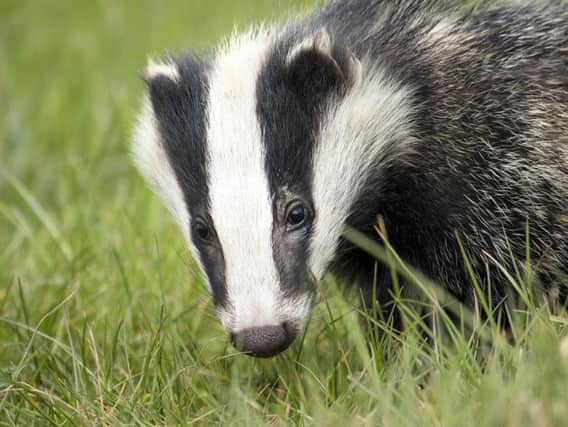Charities reveal 'worrying lack' of prosecutions for crimes against wildlife


Almost 1,300 incidents were recorded by the 18 charities in a year but there were only 22 prosecutions or convictions, it reveals.
The report, co-ordinated by Wildlife and Countryside Link and Wales Environment Link, says the charities’ data for England and Wales for 2016 was believed to be more comprehensive than Home Office crime statistics but was still likely to be the “tip of the iceberg”.
Advertisement
Hide AdAdvertisement
Hide AdIt calls on the Home Office to follow Scotland’s lead and create specific police recording codes for wildlife crime, so the issue can be better monitored.
Dr Elaine King, director of Wildlife and Countryside Link, said: “We must protect our wildlife from horrible deaths at the hands of badger baiters, poachers and illegal hunters.
“Scotland has legal requirements to report on this issue and wildlife in England and Wales must not be forgotten.”
The report highlights North Yorkshire as the county with the highest number of raptor persecution cases in the last five years.
Advertisement
Hide AdAdvertisement
Hide AdIt criticises a decision by North Yorkshire Police in 2016 to caution a gamekeeper who admitted setting three pole traps for birds of prey on a grouse-shooting estate in the Yorkshire Dales National Park, which the force later admitted had been a mistake.
But it praises the force for setting up a rural taskforce, believed to be the largest unit dedicated to tackling rural crime in England.
Nearly half of the 1,278 incidents across England and Wales involved badgers, but only five cases came to court, including one which saw four Bradford men jailed for badger-baiting in woodland in North Yorkshire.
Dominic Dyer, chief executive of the Badger Trust, said: “We are urging the Home Office to heed the public’s sense of injustice at these crimes, and record and report on them transparently, so that resources can be targeted effectively to help stop animals and birds being senselessly killed.”
Advertisement
Hide AdAdvertisement
Hide AdA spokesman for the Home Office said: “The Government recognises the importance of tackling wildlife crime. That is why, along with the Department for Environment, Food and Rural Affairs, the Home Office directly funds the National Wildlife Crime Unit to support its work to tackle these crimes in addition to providing funding to police forces to tackle all types of crime, including wildlife crime.
“Of course, to tackle wildlife crime, incident data alone is not the whole answer. The National Wildlife Crime Unit gathers intelligence from a number of organisations including police forces, Border Force and bodies such as the Royal Society for the Protection of Animals.
“The National Wildlife Crime Unit uses this intelligence to produce strategic and tactical assessments of wildlife crime across the UK.”